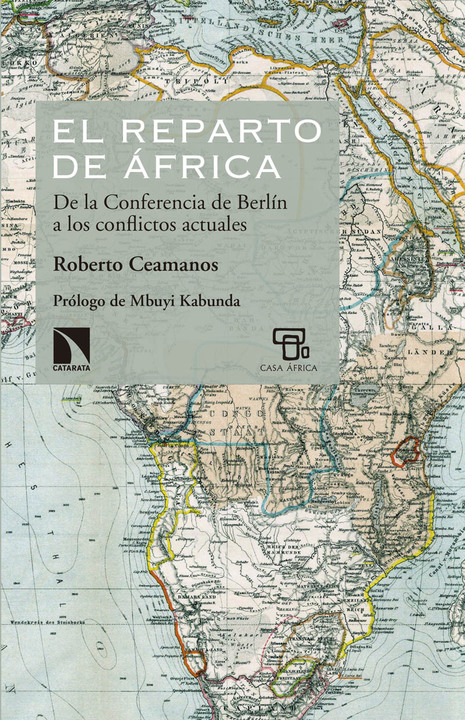Books and publications
Index / Activities / Books and publications / The Apportionment of Africa: From the Berlin Conference to today’s conflicts
The Apportionment of Africa: From the Berlin Conference to today’s conflicts
February 01, 20177:00 p.m.
MADRID
Casa Árabe Auditorium (at Calle Alcalá, 62).
7:00 p.m.
Free entrance until the event’s capacity is reached.
In Spanish
Presentation of the book “The Apportionment of Africa” from the Casa África Essay Collection.
Europe’s colonial powers invaded Africa in the late nineteenth century and agreed to divide it up and apportion it at the Berlin Conference, forcing the creation of artificial borders which have nothing to do with the ethnic groups living there. This has led to major conflicts, also fuelled by the exploitation of natural resources which continues to take place today. This exploitation of raw materials (diamonds, gold, oil, coltan, etc.) and the conflicts which that creates have also continued. The results are all too well-known in countries like Angola, Liberia, Sierra Leone, South Sudan, Nigeria and the Democratic Republic of Congo. Speaking to us about this heavy burden left behind by their colonial heritage are Roberto Ceamanos, in this work with a foreword by Mbuyi Kabunda, who reminds us that Africa must leave behind the logic of the economies which justified colonization in order to start producing for Africa itself.
Presented by:
Pedro Villena, General Director of Casa Árabe.
Luis Padrón, General Director of Casa África.
Participants:
Roberto Ceamanos, professor of Contemporary History at the University of Zaragoza
Mbuyi Kabunda, political scientist
Roberto Ceamanos
A professor of Contemporary History at the University of Zaragoza, Ceamanos’ main lines of research revolve around the historiography and history of France and the history of Spain in the 1930’s. He is the author of several articles in scientific journals and, in addition to others, the books De la historia del movimiento obrero a la historia social (From the History of the Workers’ Movement to Social History, 2004), Militancia y Universidad. La construcción de la historia obrera en Francia (Militancy and University: Building a workers’ history in France, 2005), Los años silenciados. La II República en la Comarca de Tarazona y el Moncayo (The Silenced Years: The Second Republic in the regions of Tarazona and Moncayo, 2006), El discurso bolchevique. El Parti Communiste Français y la Segunda República española (The Bolshevik Discourse: The French Communist Party and the Second Republic, 2010), Isidro Gomà i Tomàs. De la Monarquía a la República, 1927-1936 (Isidro Gomà i Tomas: From the monarchy to the republic [1927-1936], 2012) and La Comuna de París, 1871 (The Paris Commune [1871], 2014).
Mbuyi Kabunda
A professor who specializes in regional integration problems, development, gender, human rights and conflicts in Africa, Kabunda earned his university degree in Political Science from the University of Congo. He is currently a professor and member of the International Human Rights Institute of Strasbourg and the PhD program in International Relations and African Studies at the Universidad Autónoma de Madrid. He has been a professor of International Relations and the head of the International Relations Department at the University of Lubumbashi, a professor of this same subject at the Universidad Autónoma de Madrid and the University of Basel, a professor at Deusto University’s Pedro Arrupe Human Rights Institute and in the European Master’s degree program for Human Rights and Democratization in Venice.
Casa Árabe, Casa África and Editorial Catarata

